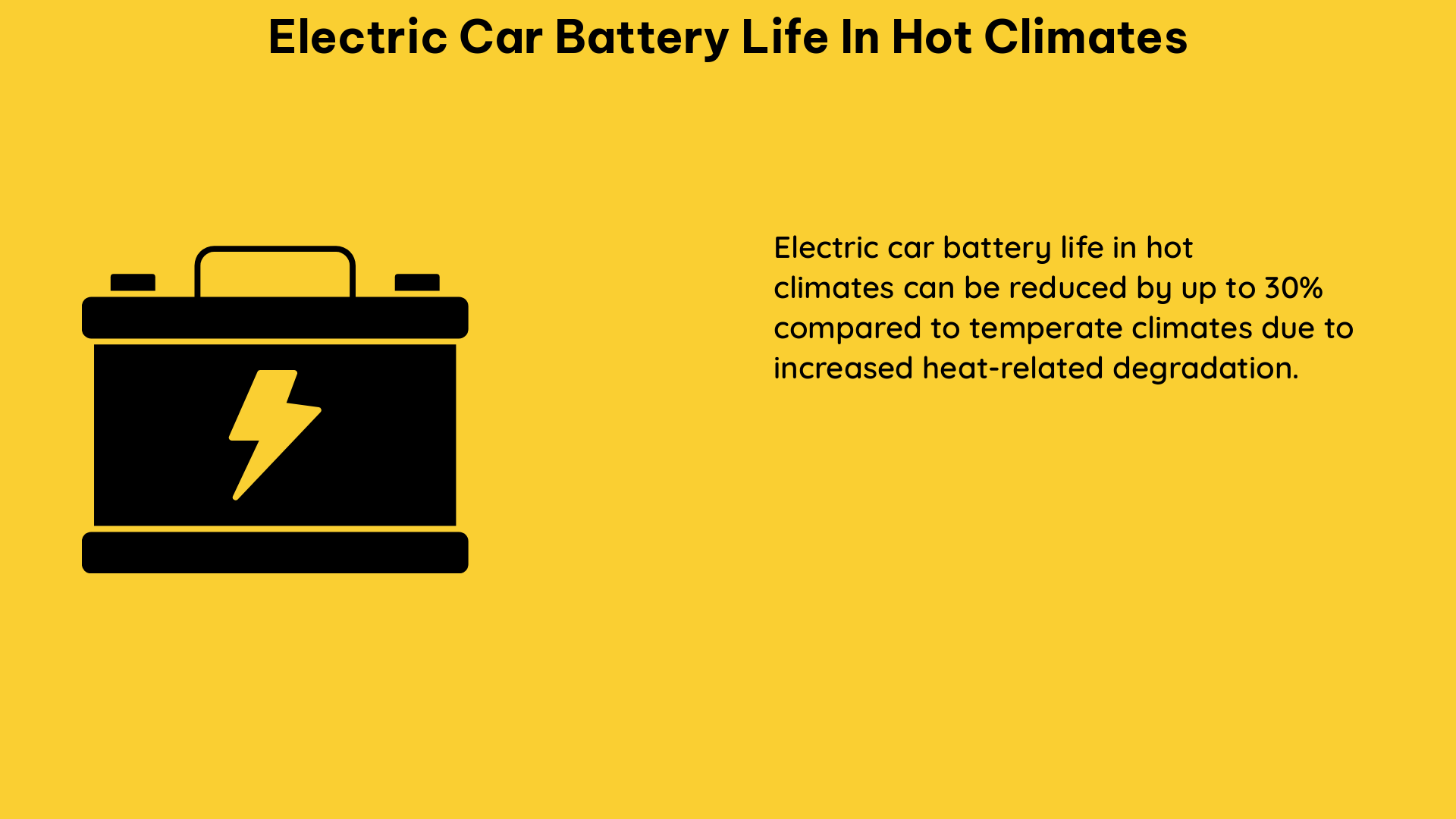Electric vehicles (EVs) have gained immense popularity in recent years, offering a sustainable and eco-friendly alternative to traditional gasoline-powered cars. However, one of the key concerns for EV owners, especially those living in hot climates, is the impact of high temperatures on their vehicle’s battery life. This comprehensive guide delves into the technical details and provides practical solutions to help you maximize the lifespan of your electric car’s battery in hot weather conditions.
Understanding the Impact of Heat on EV Batteries
Lithium-ion batteries, the predominant power source for modern EVs, are highly sensitive to temperature fluctuations. The optimal operating temperature range for these batteries is between 60°F (15°C) and 95°F (35°C). Exposure to temperatures above this range can have a significant impact on the battery’s performance and longevity.
Performance Reduction at High Temperatures
As the temperature rises above 95°F (35°C), EV lithium-ion batteries can experience several adverse effects:
- Faster Discharge Rates: The battery’s internal resistance increases, leading to faster discharge rates and reduced driving range.
- Reduced Energy Storage Capacity: The battery’s ability to store and deliver energy efficiently decreases, resulting in a lower overall capacity.
- Inefficient Power Delivery: The battery’s power output becomes less efficient, affecting the vehicle’s acceleration and overall performance.
Range Loss in Hot Climates
The impact of high temperatures on EV range can be substantial. According to research, the average range loss at 80°F (26.7°C) is 2.8%, rising to 5% at 90°F (32.2°C) and a staggering 31% at 100°F (37.8°C).
Thermal Management Systems (TMS) and Their Limitations

To mitigate the effects of high temperatures on EV batteries, manufacturers have developed advanced thermal management systems (TMS). These systems use various cooling techniques, such as liquid cooling or air conditioning, to maintain the battery pack within the optimal temperature range.
However, even with these sophisticated TMS, extreme heat can still pose challenges. The energy required to power the cooling systems can reduce the overall driving range of the vehicle. Additionally, in prolonged high-temperature conditions, the TMS may struggle to keep the battery pack at the ideal temperature, leading to accelerated degradation.
Battery Degradation and Thermal Stress
Exposure to high temperatures can also accelerate the natural degradation process of lithium-ion batteries. A scientific study has shown that the degradation rate of maximum charge storage capacity increases significantly at higher temperatures.
At 95°F (35°C), the study found a 20% reduction in range, while at 113°F (45°C), the range reduction reached 30%. This thermal stress can lead to premature aging of the battery, reducing its overall lifespan and performance.
The Importance of Battery Thermal Management System (BTMS)
To address the challenges posed by high temperatures, electric vehicles are equipped with a dedicated Battery Thermal Management System (BTMS). The BTMS is responsible for maintaining the battery pack within the optimal temperature range, ensuring efficient operation and prolonging the battery’s lifespan.
However, even with a BTMS in place, extreme heat can still accelerate the aging process of the battery. In such cases, the BTMS may struggle to keep the battery at the ideal temperature, leading to faster degradation.
Fast Charging and Heat-Based Degradation
Another factor that can contribute to heat-related battery degradation is the use of high-voltage fast charging. The rapid influx of energy during fast charging can generate significant heat within the battery pack, leading to heat-based degradation over time.
While modern EVs are designed to handle occasional high-voltage charging, it is recommended to use lower-voltage charging for everyday use to minimize the impact on the battery’s long-term health.
Protecting Your EV Battery in Hot Climates
To maximize the lifespan of your electric car’s battery in hot climates, consider the following strategies:
- Adjust Regenerative Braking Settings: Reduce the regenerative braking intensity to minimize the heat generated during deceleration.
- Moderate Acceleration and Speed: Avoid aggressive driving and maintain a moderate pace to reduce the strain on the battery.
- Keep the Battery State of Charge (SOC) Under 80%: Avoid keeping the battery at a high state of charge, as this can accelerate degradation in hot conditions.
- Park in Shaded Areas or Garages: Minimize the battery’s exposure to direct sunlight by parking in shaded areas or garages whenever possible.
- Use Lower-Voltage Charging for Daily Use: Opt for Level 1 or Level 2 charging for your everyday charging needs to reduce heat-based degradation.
- Monitor Battery Health: Regularly check your EV’s battery health and consider replacing the battery if it has degraded significantly.
By understanding the technical details and implementing these practical strategies, you can help ensure your electric car’s battery maintains its optimal performance and longevity, even in the face of hot climates.
Reference:
- How does hot weather affect electric vehicles? – EV Engineering, https://www.evengineeringonline.com/how-does-hot-weather-affect-electric-vehicles/
- Extreme heat affects EV battery performance – NewsNation, https://www.newsnationnow.com/automotive/extreme-heat-ev-battery-performance/
- Impact of high temperature on EV batteries and options for users, https://nickelinstitute.org/en/blog/2023/july/impact-of-high-temperature-on-ev-batteries-and-options-for-users/
- EV Battery Health after 250 Million Electric Car Miles – Recurrent, https://www.recurrentauto.com/research/lessons-in-electric-car-battery-health
- A Heat Wave Will Cook Your Electric Car Battery, If You Let It, https://www.bloomberg.com/news/articles/2023-07-11/how-high-temperatures-break-down-electric-car-batteries

The lambdageeks.com Core SME Team is a group of experienced subject matter experts from diverse scientific and technical fields including Physics, Chemistry, Technology,Electronics & Electrical Engineering, Automotive, Mechanical Engineering. Our team collaborates to create high-quality, well-researched articles on a wide range of science and technology topics for the lambdageeks.com website.
All Our Senior SME are having more than 7 Years of experience in the respective fields . They are either Working Industry Professionals or assocaited With different Universities. Refer Our Authors Page to get to know About our Core SMEs.